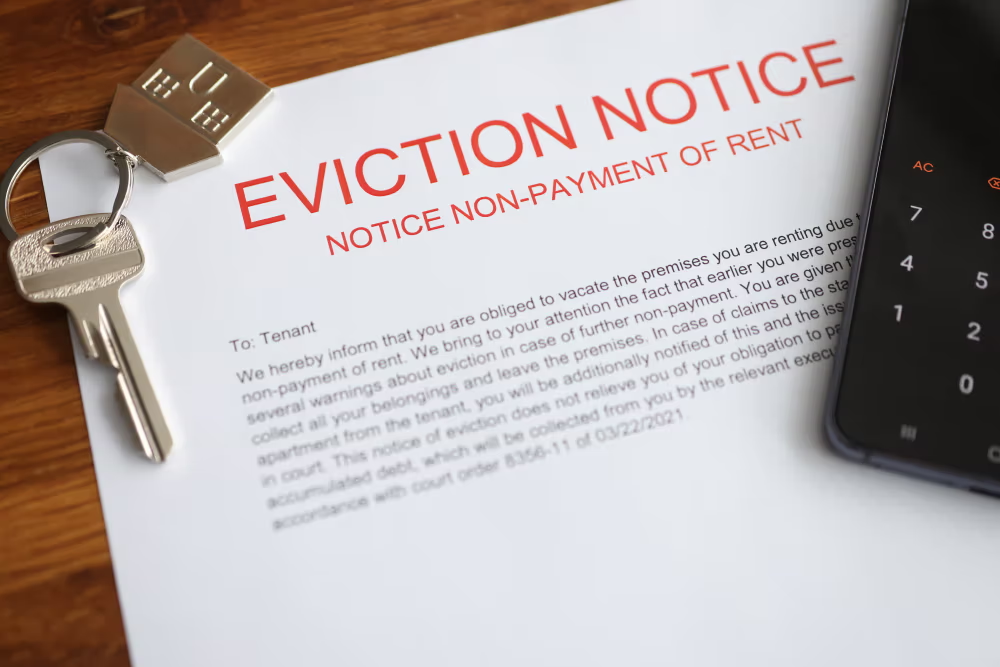What Happens If You Miss a Mortgage Payment?

Missing a mortgage payment can be a source of significant stress for homeowners. It’s important to understand the potential consequences and the steps you can take to mitigate the situation. Asking yourself “What Happens if You Miss a Mortgage Payment?” may be one of the most important questions one can ask. This article aims to provide a comprehensive overview of what happens if you miss a mortgage payment, and how to navigate the challenges that follow.
Early Stage: Initial Missed Payment
- Grace Period: A late mortgage payment isn’t a big deal if it happens within a certain period. Typically, lenders provide a grace period for mortgage payments, often lasting about 15 days, though this can vary depending on your lender. During this period, you can make your mortgage payment without incurring any late fees or penalties. This grace period offers a short window of flexibility, giving you some leeway if you’re unable to make the payment precisely on the due date.
- Late Fees: Late or missed mortgage payments are subject to late fees once they surpass the grace period. The specifics of these fees, including their amount and the conditions under which they are charged, are dictated by the terms of your individual mortgage agreement. These fees can add up over time, so it’s important to be mindful of your payment deadlines and the grace period’s duration to avoid unnecessary additional charges.
One to Two Months Behind: Increased Communication from Lender
- Lender Contact: After missing a mortgage payment, be prepared for increased communication from your lender. These communications are typically in the form of notices, phone calls, or emails, and their frequency will likely intensify as the payment becomes more overdue. The intent is to remind you to ask yourself the important question “what happens if you miss a mortgage payment?”. It’s crucial to not ignore these communications, as they indicate your lender’s awareness of the missed payment and their desire to resolve the issue.
- Payment Plans: In many cases, especially if you engage proactively with your lender, there’s the possibility of negotiating a payment plan. Such arrangements are designed to help you catch up on missed payments in a structured and manageable way. Lenders may offer various options like extending your loan term, temporarily reducing payments, or even pausing payments under certain conditions. It’s essential to approach these negotiations with a clear understanding of your financial situation, as well as the terms you can realistically comply with. Keep in mind that lenders are often more willing to work with borrowers who show initiative in addressing their payment challenges.
Three Months Behind: Pre-Foreclosure Risks

- Notice of Default: If your mortgage payments are overdue by 90 days or more, your lender may issue a Notice of Default. This document serves as a formal notification and a serious warning that your loan is in default, significantly increasing the risk of foreclosure proceedings. The Notice of Default is a critical stage in the mortgage process, signaling a shift from late payments to potential legal action. It’s vital to address this situation promptly, as it represents a final opportunity to negotiate with the lender before foreclosure steps are initiated.
- Impact on Credit Score: Missing mortgage payments, especially over an extended period, has a detrimental effect on your credit score. Each late payment is typically reported to credit bureaus, and these marks on your credit history can significantly lower your score. This decline in credit rating can have long-term implications, affecting your ability to obtain loans, credit cards, or favorable interest rates in the future. A lowered credit score reflects a higher risk to lenders, making it more challenging to secure financial assistance or refinancing options. It’s important to be aware of these consequences and take steps to protect your credit health.
Foreclosure Process: Four or More Months Behind
- Foreclosure Proceedings: In situations where missed mortgage payments continue without resolution, lenders may eventually move to initiate foreclosure proceedings. This is a legal process whereby the lender seeks to recover the balance of a loan from a borrower who has stopped making payments. Foreclosure is typically the last resort for lenders and is pursued only after all other attempts to remedy the missed payments have failed. The process involves legal actions that can lead to the forced sale of the property at a public auction. It’s essential for homeowners to understand that entering into foreclosure can have serious legal and financial implications.
- Loss of Home: The most direct and severe consequence of foreclosure is the loss of your home. If the foreclosure process concludes and the property is sold, you may face eviction. Eviction means you are legally required to leave the property, often within a short time frame, leading to significant personal and financial upheaval. Additionally, foreclosure and eviction can have long-lasting impacts on your credit report and make it difficult to purchase a new home in the future. It’s crucial for homeowners facing foreclosure to explore all available options, such as loan modification, short sale, or even selling the home quickly for cash to avoid the severe outcome of losing their home through foreclosure.

How to Respond to a Missed Mortgage Payment
- Communication is Key: Contact your lender immediately if you are faced with the question “What happens if you miss a mortgage payment?”
- Explore Assistance Programs: Many lenders offer hardship programs to help you catch up.
- Refinancing or Loan Modification: Refinancing your mortgage or modifying your loan terms might be options to consider.
- Professional Advice: Consult with a financial advisor or a housing counselor for personalized advice. Here are some links…
Asking yourself “What Happens If You Miss a Mortgage Payment?” doesn’t always lead to immediate foreclosure. Understanding your options, communicating with your lender, and taking proactive steps can help you navigate this challenging situation.
Remember, each lender and loan situation is unique, and the above information provides a general guideline. It’s crucial to understand the specific terms of your mortgage agreement and seek professional guidance when necessary.
An Alternative Solution
Selling Your Home Fast for Cash

In certain situations, the most practical option may be to sell your home quickly. This is where ‘Sell Your Home Fast For Cash’ comes into the picture. Particularly in scenarios where foreclosure looms, instead of facing the daunting prospect of losing everything, our service can offer a lifeline. We provide a fair and prompt cash offer for your home, giving you a way out that protects your financial interests and offers immediate relief. To learn more about Sell Your Home Fast For Cash
If you’re considering this route, or simply want to explore your options, we’re here to help. Fill out our form to request a cash offer for your home. It’s a straightforward process that could open the door to a new beginning, free from the burden of a challenging mortgage situation.
Interested in finding out more about who we are? Visit our About Page.
You can also visit our contact page to get in touch.
SOME GUIDES AND RESOURCES
What Happens If You Miss A Mortgage Payment?
Finding a Housing Counselor for Mortgage Assistance
Understanding the Foreclosure Process
Information on Mortgage Late Fees
Guide to Loan Modification and Refinancing Options
Strategies for Communicating With Your Lender